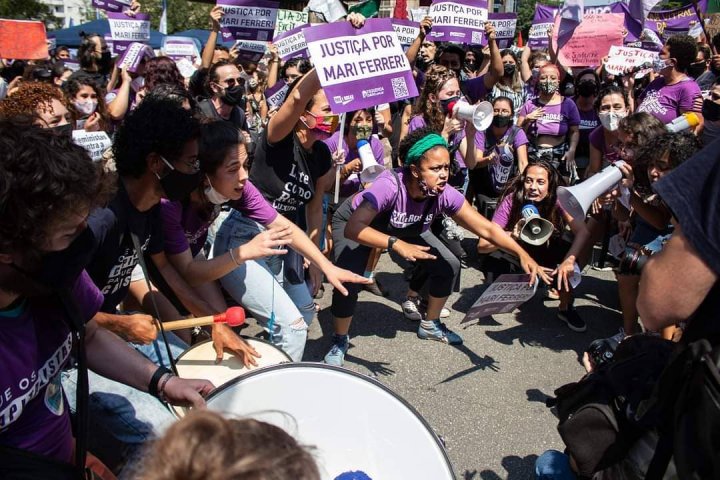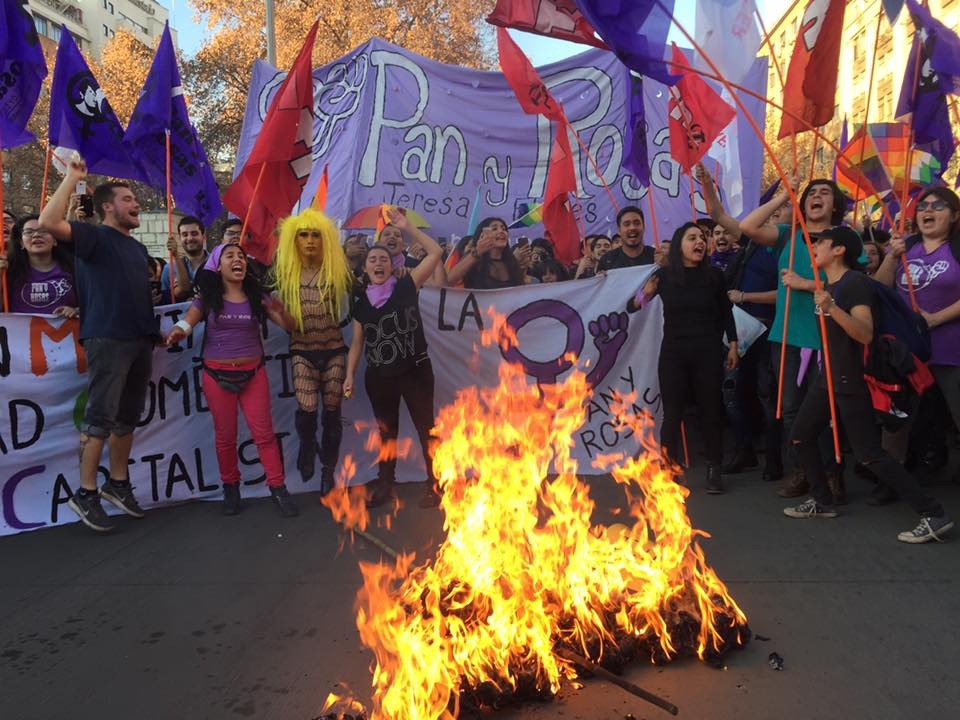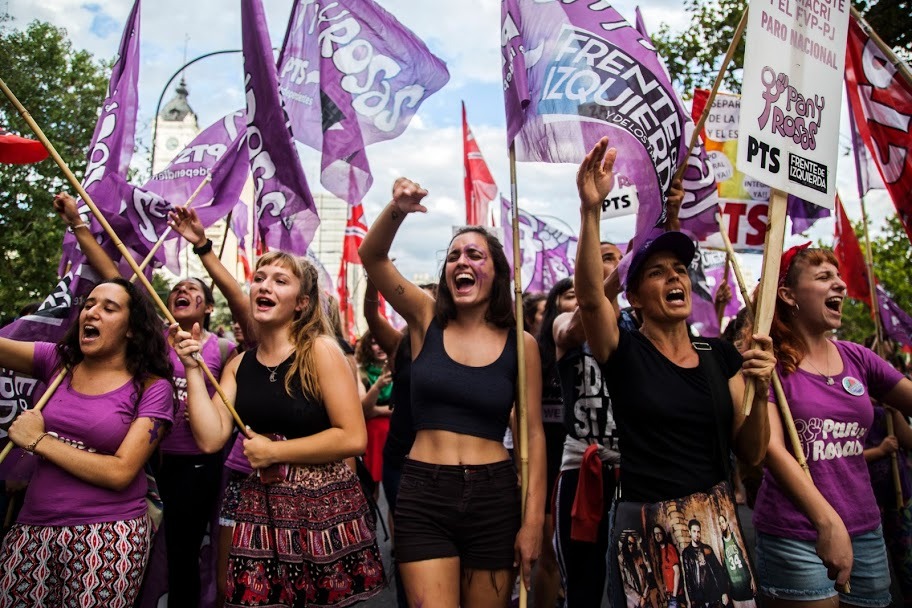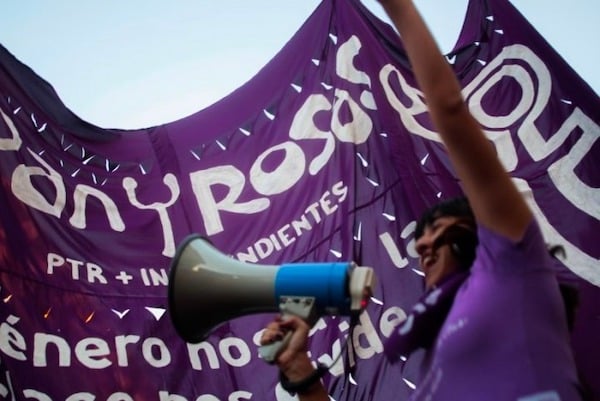The situation is dire.
A reactionary and increasingly radicalized far right is on the advance, attacking reproductive, queer, immigrant, and democratic rights–particularly targeting Black and Brown people and trans youth. These extremely reactionary policies disproportionately affect working and poor people.
The nationwide right to an abortion has been overturned by a despotic and anti-democratic Supreme Court. Clearly, under capitalism, the victories won by our movements can be taken away in the blink of an eye; this system will not provide our liberation.
The Supreme Court has advanced the right-wing agenda in massive leaps over the past month–limiting climate regulations, further eroding the paltry separation of church and state, and allowing the indefinite detention of undocumented people. They show no signs of stopping anytime soon.
Meanwhile, it seems that nearly every day a new anti-trans bill is proposed or passed. Military and police budgets rise while our incomes fall further and further against inflation. As we hurtle towards a recession, the Fed blames workers’ meager raises, while the bosses and boards continue to make record-breaking profits. Amazon profits rose by 220 percent ($108 billion in sales during the first three months of 2021). At the same time, the company paid $4.3 million to union-busters to spread lies and prevent workers from forming unions.
Every week seems to bring news of a new “once-in-a-lifetime” climate disaster, from major flooding in Yellowstone, to heat waves and cold snaps. The UN reports that a record number of people are facing starvation, in large part due to climate disasters. Yet, big corporations–with the help of Democrats and Republicans alike–ravage the planet to make ever-increasing profits, creating the conditions for life-altering weather events. While the capitalists plan for space travel, the capitalist state builds walls and criminalizes immigration–which will only increase as the climate crisis intensifies. Women, LGBTQ+ folks, and people of color are the first to suffer displacement and the other consequences of capitalist-driven climate change. They sacrifice our futures for their profits.
These attacks demand an organized and strategic resistance and defense. They demand that we take the streets, that we organize a mass movement like the one in Argentina, which won the right to an abortion in a predominantly Catholic country. We have the ability to “Shut it down!”: not only in the streets, but also in our workplaces, where our power as organized workers can hit the capitalists in their pocketbooks. We have the ability to shut down the whole economy for the rights of working-class and oppressed people, and that’s the power we must harness.

But we aspire to more than just defending against these attacks.
We demand free and safe abortions and gender-affirming healthcare, parental leave, free childcare, and a free healthcare system controlled and organized by communities and healthcare workers, not by profit-seeking bosses. To win these demands, we must confront and fight to abolish the institutions that oppress us: the U.S. military, ICE, the police, the Supreme Court, and the whole capitalist system they protect and defend.
The Democratic Party is not our friend or ally in this struggle. They will give lip service to our movements in order to contain struggle, then open the door and shake hands with those who attack our basic rights. Defending against the attacks we face and fighting for our rights requires an independent movement that does not give one iota of political support to the Democratic Party. Even “progressive” Democrats who promise sweeping reforms to mitigate the worst of capitalism’s inequities will always fall in line with the mainstream Democrats on the most important issues, whether it’s voting for funding to the Israeli military, supporting Nancy Pelosi for Speaker of the House, or otherwise ceding ground to the increasingly-reactionary policies of the center and the Right. This is because ultimately these wings of the political apparatus share a common goal–to uphold this capitalist system and to constrain struggle and crisis within its limits.
This moment demands a feminism that sees and fights the system as a whole, a system that denies working-class and oppressed people our basic rights. It demands a feminism that not only dreams of a better world, a world of freedom and equity, but actively organizes for that future, which will only be achieved by the overthrow of capitalism.
This moment needs socialist feminism.
Why Socialist Feminism?
Neoliberal, imperialist feminism has nothing to offer women, LGBTQ+ people, disabled people, people of color, or any oppressed group. The girl-boss lean-in feminism of Hillary Clinton and Kamala Harris is a dead-end strategy, used to justify the continued exploitation and oppression of hundreds of millions of people in the United States and across the globe. This feminism warped liberation to mean more room at the top for a select few, room to participate in and in some cases lead the everyday violence of this imperialist capitalist system. It fed us the lie that playing by the rules–“breaking the glass ceiling,” “diversifying the top,” and passing the right laws–could achieve equality; but capitalism systemically denies billions of people across the world the material conditions that would make such equality possible. And it was this logic that defanged, co-opted, and dismantled the militant movements that fought for, and in some cases won, our rights in the past.
Even as the first woman of color serves as the vice president of the United States, millions of women, queer people, and people of color are losing their rights. While queer CEOs and politicians position themselves as progressive, queer people are seeing the worst attacks in generations. As corporations pat themselves on the back for featuring LGBTQ+ and BIPOC people in their advertisements, the workers at these companies are ruthlessly exploited. The state and the capitalist system it protects hold nothing for us other than disaster and exploitation.
Our feminism stands on the side of the new unionization wave we are witnessing at Starbucks, Amazon, and also among reproductive rights workers, like at Planned Parenthood. It’s young people of color, queer folks, and women who are on the front lines of these struggles and who highlight that the working class is multi-racial, multi-gender, and must be organized to fight back against the bosses who want to hyper-exploit our labor. Our feminist movement must fight so that every worker has a union and we support labor struggles in the U.S. and around the world. These unions must fight for a living wage, better benefits, longer breaks and all of the other necessities of workers in the workplace. But they must also fight for the issues of oppressed people–like for abortion rights, climate change, housing and more. That will often mean putting up a fight within our unions to take up these struggles and ensure that they are led by the rank-and-file. Top-down business unions have done almost nothing as our rights are being stripped away; we must fight so that our unions are fighting bodies that put the power of the organized working class in the hands of the workers themselves. That’s why members of Bread and Roses have organized and are a part of CUNY for Abortion Rights and are calling for rank-and-file committees to fight for reproductive justice.
Our feminism not only includes trans people, but it fights against any political project that excludes trans people. Our feminism fights for trans rights, including access to free gender-affirming care for anyone of any age who wants it. We fight attacks on trans people, especially on trans youth. We demand LGBTQ+ inclusive curricula in schools and in sexual education classes.

Our feminism is on the side of Black liberation and the Black Lives Matter movement, against police and the prison industrial complex. We fight to kick cops out of our unions, to oppose “progressive” prisons, to integrate Black history into school curricula, and to abolish all of the repressive institutions that oppress and repress Black people.
We know that racism, as well as all forms of oppression are institutional. It will not be eradicated without eradicating the racist, sexist, and ableist institutions that maintain capitalist profits. But we also know that bigotry also expresses itself interpersonally–even among working-class and oppressed people. It is essential that we fight those racist, sexist, homo-and transphobic attitudes among our co-workers and community. Throughout history, the bosses and the capitalists have used and fostered racism in white workers in order to ensure that workers do not unite against the bosses; xenophobia, sexism, abelism, homo- and transphobia have been used similarly. That is why it is essential to build a socialist feminist movement that actively says that Black Lives Matter and stands on the side of all oppressed people.
Our feminism stands not on the side of Hillary Clinton or Kamala Harris, but with the people in Palestine, in Mexico, in Venezuela, in Somalia, and in Iran, who are hurt and killed by their policies. We need a feminism that is international and anti-imperialist. We reject the reactionary war of Putin against Ukraine, but we also reject any idea that U.S. imperialism and NATO could be a progressive force in the world. We fight for a feminism that opposes every increase in the military budget, a feminism that fights to close U.S. bases around the world and abolish the imperialist U.S. military.
We need a feminism that is serious about winning every reform that improves the lives of workers and the oppressed, but also understands that reforms in capitalism are fleeting and can be reverted in moments of crisis. There is no liberation for oppressed people within the confines of capitalism–capitalism takes a system of oppression and discrimination and uses it for profit: the unpaid labor of overwhelmingly women and other marginalized genders in the home, the semi-slave labor of disproportionately Black and Brown people in prisons, the low-waged labor of undocumented people or the lower wages paid to women, especially Black and Brown women. Oppression is immensely profitable to the capitalist system, and thus, capitalism will never end oppression.
That’s why we fight for socialism: for a society in which every material need is met, a society that guarantees the right to free time, to art, to self-realization, and to pleasure. A society in which work is distributed among those who are able to labor, in which technology is used to reduce work, and the rest of the time is free for us to use as we like. A society in which democracy isn’t a game of choosing your next oppressor every few years, but an everyday practice of deciding how society will function. A truly democratic society where healthcare workers and patients run the healthcare system, where teachers, students and community members run the schools, and so on. We demand a society in which production is for human needs, not for the profits of a few.
We know that this is possible. We fight for reforms and use every struggle to build our strength–the unity of the working class, the construction of a socialist organization, the fortification of our numbers in the streets, and our organization in our workplaces–to overthrow capitalism. Fighting for socialism means a direct confrontation with the capitalist state–our goal is to build the strength for mass protests, for strikes, and eventually, for revolution. In that sense, our strategy for societal change is different from that of mutual aid. While we support each other and our community, transformative change can’t be achieved by working class folks passing amongst ourselves the crumbs we are given by capitalism. In a capitalist system in crisis, our networks of mutual aid will also be attacked if we do not build an organized and combative movement in the streets and in our workplaces. And our demands are much bigger than crumbs: we believe in building a movement that demands what we deserve. The society we want will be built on the ruins of this violent capitalist system, not alongside it. That means having this confrontation with the state directly in our sights and organizing for that purpose.
In the abortion rights movement, that means fighting for free, safe and legal abortion. Our goal is not to build a movement that adapts to a post-Roe world, one that accepts that abortions will be severely curtailed, and retreats to a strategy of donations and abortion pills. These aren’t enough, and the Rar Right will inevitably attack these as well. Our goal is to build a movement for free, safe and legal abortion on demand and without apology, accessible at every hospital and clinic for anyone who wants one. This kind of movement will defend our access to abortion pills, and fight for much more.
And we believe that if we organize, we can win. The power of mass protest and self-organization in struggle cannot be underestimated–it’s what has won the right to an abortion, stopped austerity measures, and even overthrown leaders around the world. But protest alone is not enough. We need a feminism that harnesses our power as workers, those who make society run, and who can shut it down–from the factory floor to the classroom–to fight for the liberation of all peoples, and for a society free from exploitation and oppression.
The working class makes everything run; we have the collective power to shut it down, but also to produce in ways that are beneficial to the entire community without destroying the environment. We live in a society of plenty, where a few people hoard everything; it is possible for everyone to get what they need and have the conditions to live fulfilling and beautiful lives. To echo the rallying cry of feminists who came before us: we want Bread for all, but we demand Roses, too.
It’s up to us to build this kind of socialist feminism.
What is Bread and Roses?
In Argentina, a group of workers went on strike in solidarity with a trans co-worker’s right to use the bathroom at their company. Workers at Kraft foods engaged in a work stoppage against a manager who sexually harassed a female worker. These are just a few of the accomplishments of Pan y Rosas (Bread and Roses), a socialist feminist group that exists in 14 countries around the world, including Argentina, Mexico, Bolivia, Brazil, Chile, Peru, Costa Rica, France, Germany, the Spanish State, and more.

Pan y Rosas takes its name from the “Bread and Roses Strike” in Lawrence, Massachusetts in 1912, where 30,000 women workers shut down their workplaces for nine weeks. Lawrence was known as “Immigrant City,” with people from 51 different countries living together within 7 square miles, working shoulder-to-shoulder in the local textile mills. Union meetings were translated into 30 different languages. The Outlook, a local newspaper, said, “There are almost as many nationalities here in Lawrence as there are in your Babel of New York. The workers are American, English, Scotch, Irish, German, French, Flemish, French-Canadian, Polish, Italian, Syrian, Russian, Armenian…. You might not suspect that a common sentiment could animate these diverse groups and weld them into a fighting unit. Nevertheless they have struck—struck as a single homogenous body.”
At pickets and parades, strikers carried banners that demanded “Bread and Roses.” The expression came from a poem written in 1911, which reads in part,
Our lives shall not be sweated from birth until life closes;
Hearts starve as well as bodies; give us bread, but give us roses.
As we go marching, marching, unnumbered women dead
Go crying through our singing their ancient call for bread.
Small art and love and beauty their drudging spirits knew.
Yes, it is bread we fight for, but we fight for roses too.
After a difficult strike, which included massive protests, pickets, and police repression, they won a 15% pay increase, plus higher overtime pay, and a promise by the company not to retaliate against the strikers. The strike inspired many other workers in other parts of the country to go on strike as well.
Building Pan y Rosas
Pan y Rosas was originally formed in Argentina in 2003, when women from the PTS (Partido de Trabajadores Socialistas; Party of Socialist Workers). It emerged two years after the massive uprising, which also gave way to a wave of factory occupations. Brukman, a factory abandoned by the bosses in 2001, was then taken over by a predominantly female workforce. Police constantly attempted to evict the workers, but the PTS was always on the front lines with them, chanting “Aqui estan, estas son, las obreras sin patrón!” (Here they are, these are, the workers without a boss!) and “Brukman es de las trabajadoras, y al que no le gusta, se joda, se joda!” (Brukman belongs to the workers, and if you don’t like it, go fuck yourself!). In 2003, the workers were evicted by Argentine infantry.
Pan y Rosas was born as a way to organize the women workers in the factory around labor rights, as well as the fight for reproductive rights and socialist feminism.
In the early 2000’s, a National Conference for Women was called in Argentina. This conference, which has been running for 30+ years, brings together feminists from all over the country. The first Pan y Rosas delegation consisted of forty women demanding the right to free and safe abortions. By the 2017 Women’s Conference, Pan y Rosas brought 4,000 feminists from all over the country to the meeting. It organizes groups at universities, helped organize the fight for abortion rights in Argentina, and organizes women’s commissions in workplaces around the country.
The group has expanded all over the world, including Mexico, Brazil, Costa Rica, Venezuela, Peru, Uruguay, Chile, the Spanish State, Germany, France and Italy. Pan y Rosas comrades have been involved in the struggle against the coup in Bolivia, in the fight for abortion rights in Mexico, in the Yellow Vest movement in France, in the uprising against austerity in Chile, and many more struggles around the world. And now, we are launching Bread and Roses in the United States–a socialist feminist group affiliated with Left Voice. We hope this kind of organization can connect the struggles in our workplaces to the struggle in the streets and in our schools, to actually “shut it down” for abortion rights, against all attacks on our rights and lives, and for our liberation. This kind of organization can bring together all of our struggles, united in a struggle against oppression and capitalism, because we have a world to win.

